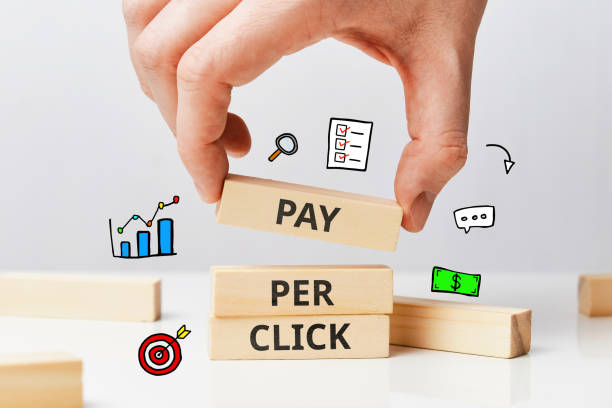Introduction
Pay-per-click (PPC) advertising is a powerful tool in a digital marketer’s arsenal. It allows businesses to reach their target audience and drive immediate results by placing ads on search engines and other platforms. However, to make the most out of PPC campaigns, it’s essential to utilize effective strategies and hacks that can maximize profitability. In this article, we will uncover seven insanely profitable pay-per-click hacks that every digital marketer must know.
1. Conduct Thorough Keyword Research
Effective keyword research is the foundation of a successful PPC campaign. Identify relevant keywords that align with your business offerings and target audience. Use keyword research tools like Google Keyword Planner, SEMrush, or Ahrefs to discover high-volume, low-competition keywords. Long-tail keywords can often yield better results as they tend to be more specific and have lower bidding competition.
2. Leverage Ad Extensions
Ad extensions are additional pieces of information that can be added to your Pay-per-click ads to provide more value to potential customers. Utilize extensions like sitelink extensions, call extensions, location extensions, and review extensions. These extensions not only make your ads more appealing and informative but also increase click-through rates (CTRs) and ad visibility.
3. Implement Ad Scheduling
Ad scheduling allows you to display your ads at specific times when your target audience is most active. Analyze your campaign data and identify the time periods when you receive the highest conversions or engagement. Schedule your ads to appear during these peak times to maximize the chances of reaching potential customers at the right moment.
4. Use Remarketing Strategies
Remarketing is a powerful technique that targets users who have previously interacted with your website or shown interest in your products or services. Create remarketing lists and tailor your Pay-per-click ads specifically to these audiences. By retargeting users who are already familiar with your brand, you increase the chances of conversions and drive higher ROI.
5. Optimize Landing Pages
A well-optimized landing page is crucial for converting Pay-per-click traffic into leads or customers. Ensure that your landing page is relevant to the ad copy and keywords. Optimize the page for speed, mobile responsiveness, and clear call-to-action (CTA) buttons. Conduct A/B testing to fine-tune your landing page elements, such as headlines, images, forms, and overall design, to improve conversion rates.

6. Implement Ad Position Bid Adjustments
Ad position bid adjustments allow you to increase or decrease your bids based on the ad position on the search engine results page (SERP). Higher ad positions generally receive more clicks and visibility but come at a higher cost per click (CPC). Analyze your campaign performance and adjust your bids strategically to achieve the optimal balance between visibility, CTR, and cost.
7. Monitor, Analyze, and Optimize
Constant monitoring, analysis, and optimization are essential for a profitable Pay-per-click campaign. Regularly review your campaign performance metrics such as CTR, conversion rate, cost per conversion, and return on ad spend (ROAS). Identify underperforming keywords, ads, or targeting options and make data-driven optimizations to improve campaign efficiency and profitability.
Conclusion
Mastering the art of pay-per-click advertising can significantly boost your digital marketing efforts. By implementing these seven insanely profitable PPC hacks, you can maximize your campaign’s profitability and achieve impressive results. From thorough keyword research to strategic bid adjustments and continuous optimization, these hacks will help you stay ahead of the competition and drive success in the dynamic world of PPC advertising.
FAQs
FAQ 1: Are PPC campaigns suitable for all businesses?
PPC campaigns can benefit a wide range of businesses, but their effectiveness may vary depending on factors such as industry, target audience, and budget. It’s important to assess your business goals, competition, and target market to determine if Pay-per-click advertising aligns with your overall marketing strategy.
FAQ 2: How long does it take to see results from a Pay-per-click campaign?
The time it takes to see results from a PPC campaign can vary depending on various factors such as campaign setup, budget, competition, and targeting. Generally, it’s recommended to monitor campaigns for at least a few weeks to gather sufficient data and make informed optimizations.
FAQ 3: What is the average CPC in PPC advertising?
The average cost per click (CPC) in PPC advertising can vary significantly depending on factors such as industry, keyword competitiveness, and ad quality. It’s important to set realistic budgets and bid strategically to achieve a balance between cost and desired results.
FAQ 4: How can I measure the success of my PPC campaigns?
Key performance indicators (KPIs) such as click-through rate (CTR), conversion rate, cost per conversion, and return on ad spend (ROAS) can help measure the success of your Pay-per-click campaigns. Analyzing these metrics and comparing them against your campaign goals can provide insights into the effectiveness and profitability of your campaigns.
FAQ 5: Should I hire a professional PPC agency for my campaigns?
Hiring a professional PPC agency can be beneficial, especially if you lack the expertise or resources to manage campaigns effectively. PPC agencies have the knowledge, experience, and tools to develop and optimize campaigns that yield better results. However, it’s important to research and choose a reputable agency that aligns with your business goals and budget.

